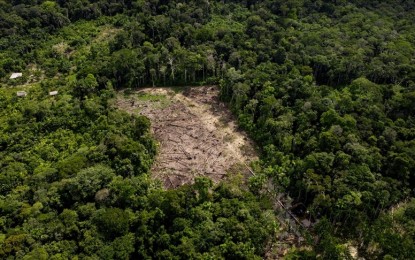
DROUGHTS. The Amazon forest continues to recover but at a slow pace due to frequent droughts since 2015, a study by Belguims’s KU Leuven University showed. The study said four extreme droughts occurred in the Amazon rainforest since the turn of the century, way over the once in a century that normally happened in the past. (Photo by Anadolu)
ISTANBUL – The recovery of the Amazon rainforest has been slow due to frequent droughts since 2015, but the rainforest continues to demonstrate remarkable resilience, scientists from Belgium's KU Leuven University said in a recently released study.
"Since the turn of the century, four extreme droughts have occurred in the Amazon rainforest. Droughts of that kind should normally occur only once per century. This shows an evident increase of droughts in the largest rainforest on our planet," a statement by the university said.
In the study, published in the Proceedings of the National Academy of Sciences (PNAS) journal, the researchers used monthly satellite visuals extending from 2001 to 2019 "to determine how the vegetation reacts to repeated periods of drought."
"The color of the tree canopy can give us information about the health and resilience of the forest. The color always changes throughout the seasons. But if over the course of the years, the trees need more and more time to recover, then something else is at play. In this case, we talk about a 'critical slowing down,' which could mean that the ecosystem is about to reach a tipping point towards large-scale forest dieback and would eventually change into a degraded system with less diversity and complexity," the statement cited Prof. Ben Somers as saying.
The outcomes of the research reveal that the Amazon rainforest "is not yet going to reach this kind of tipping point" for the time being.
The scientists also discovered that "mainly the intensity and duration of the drought periods led to forest degradation, more than the number of drought periods." (Anadolu)
